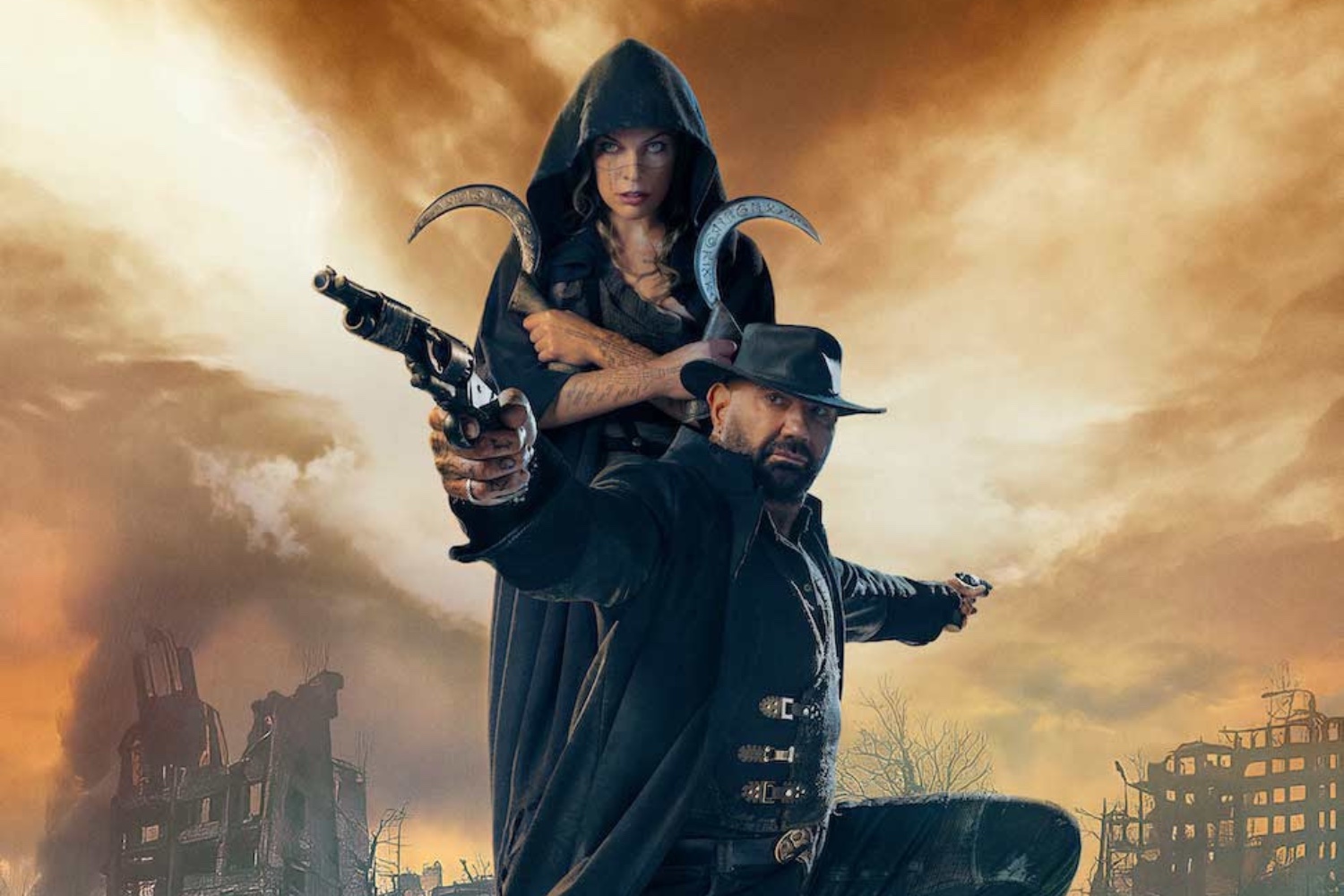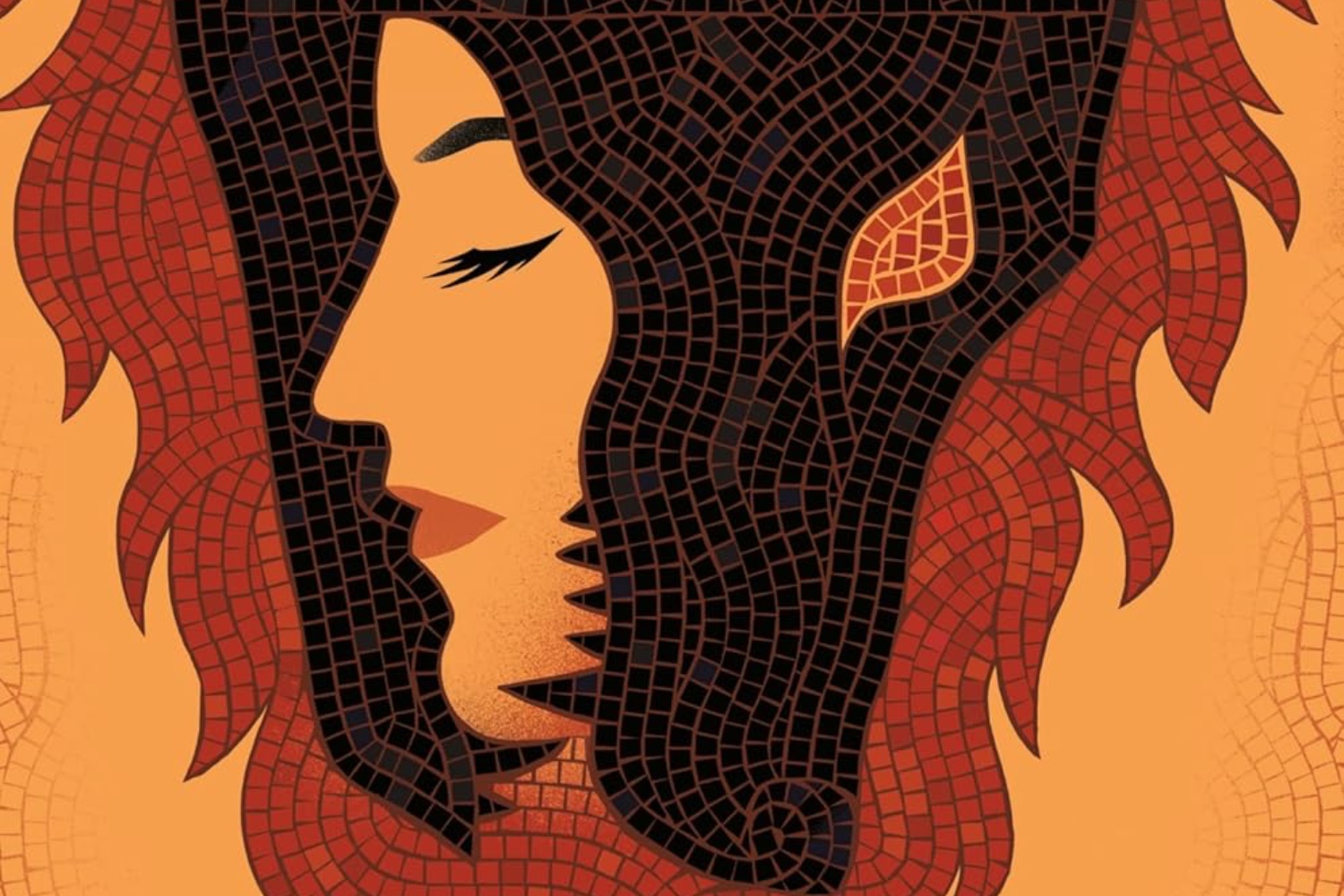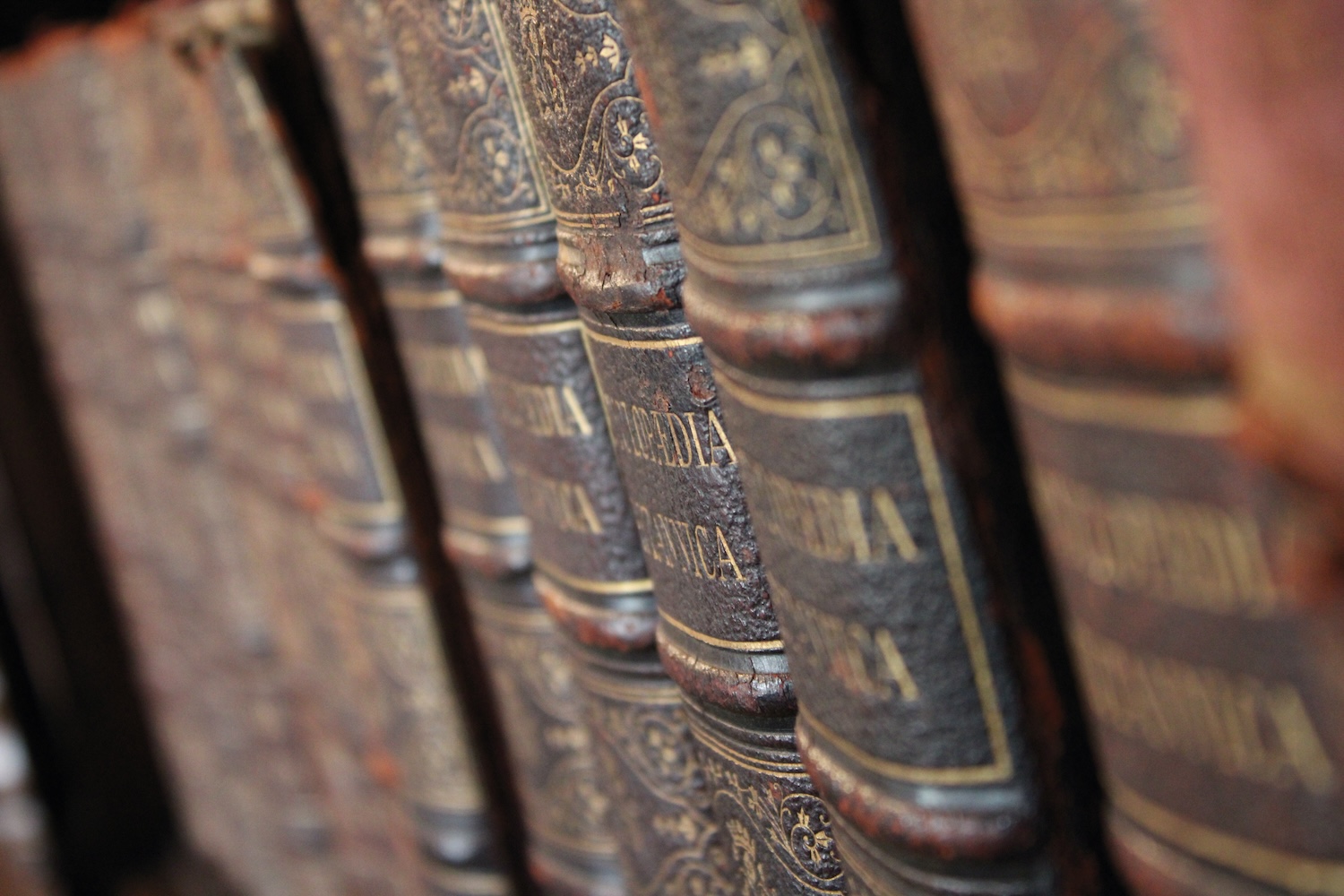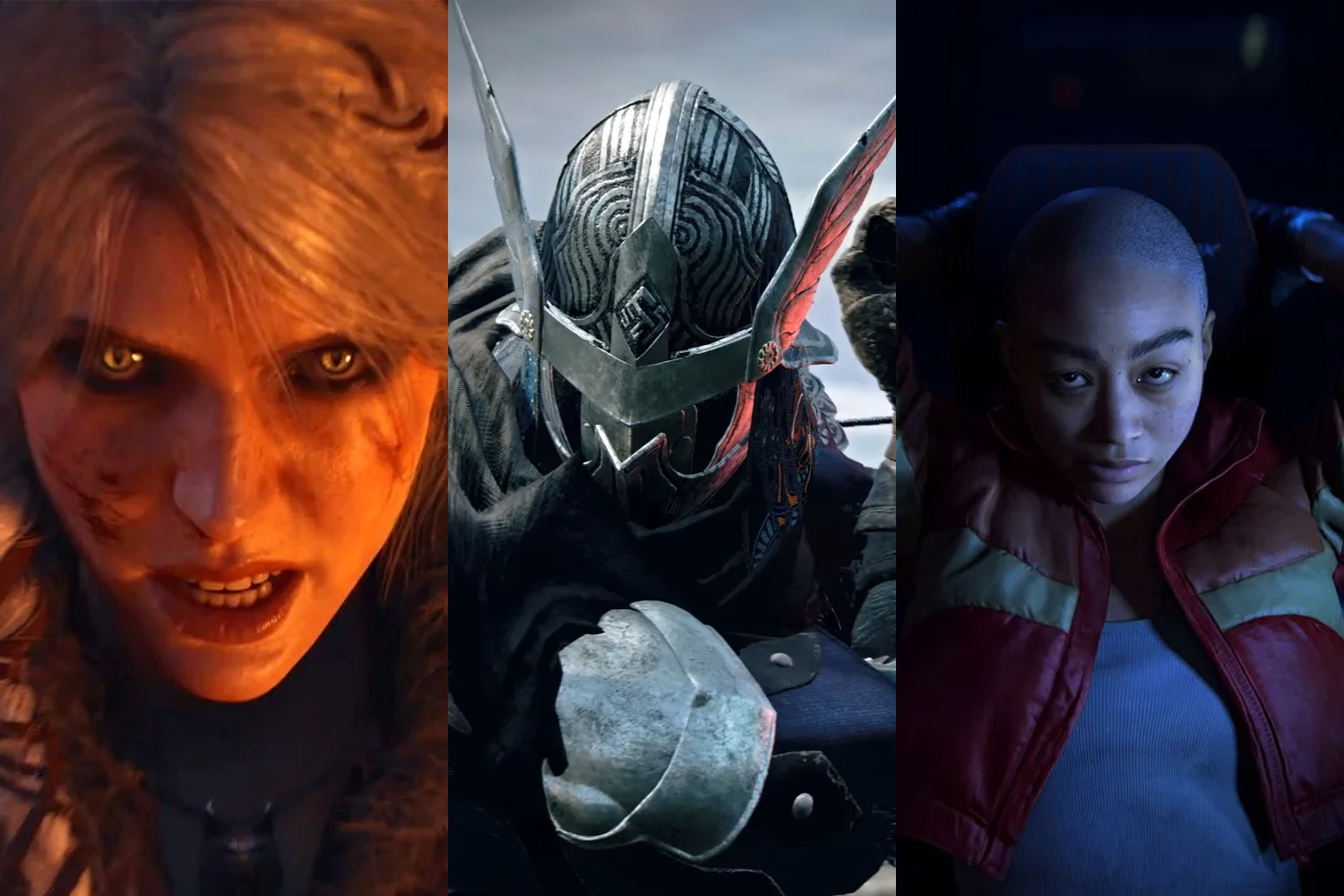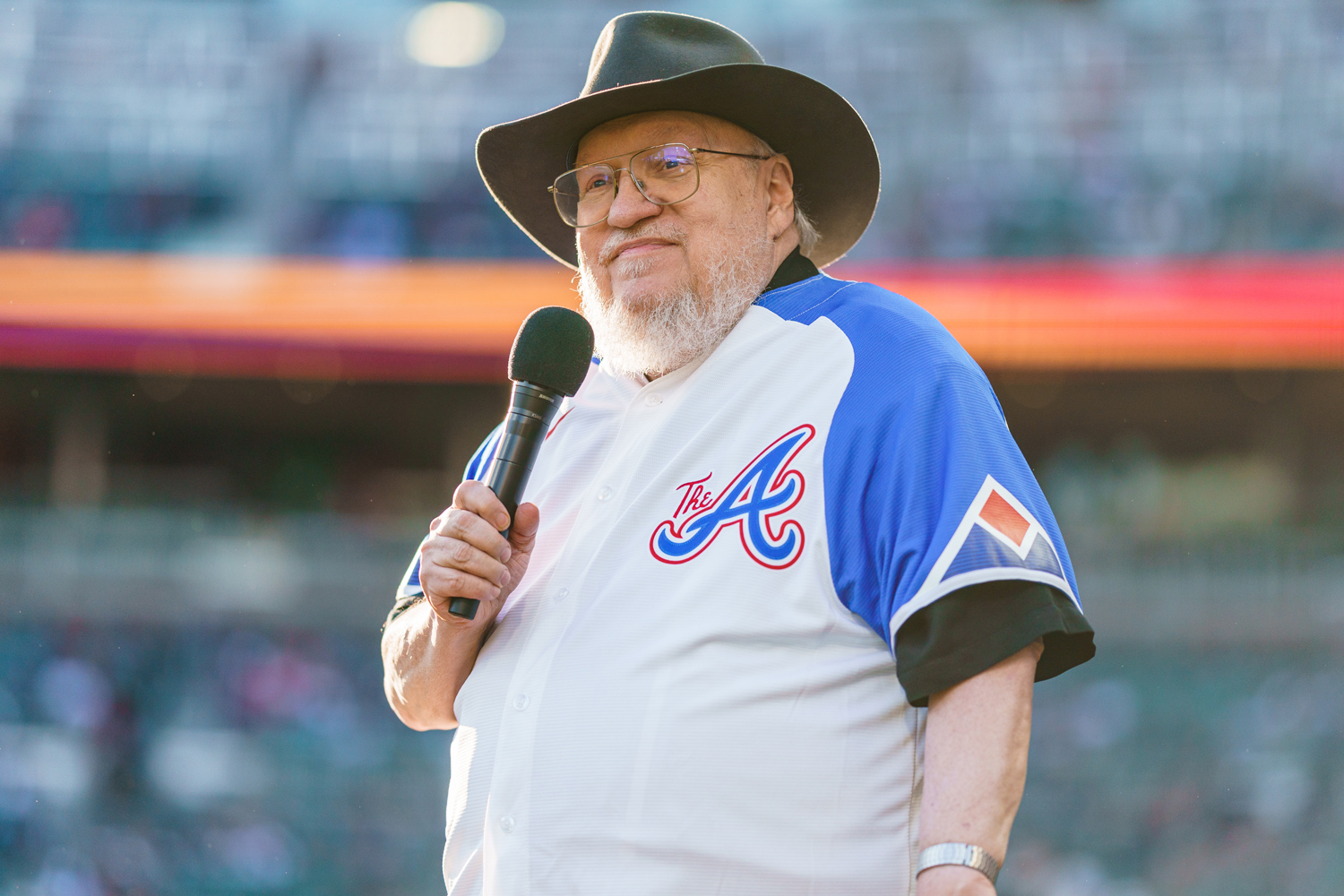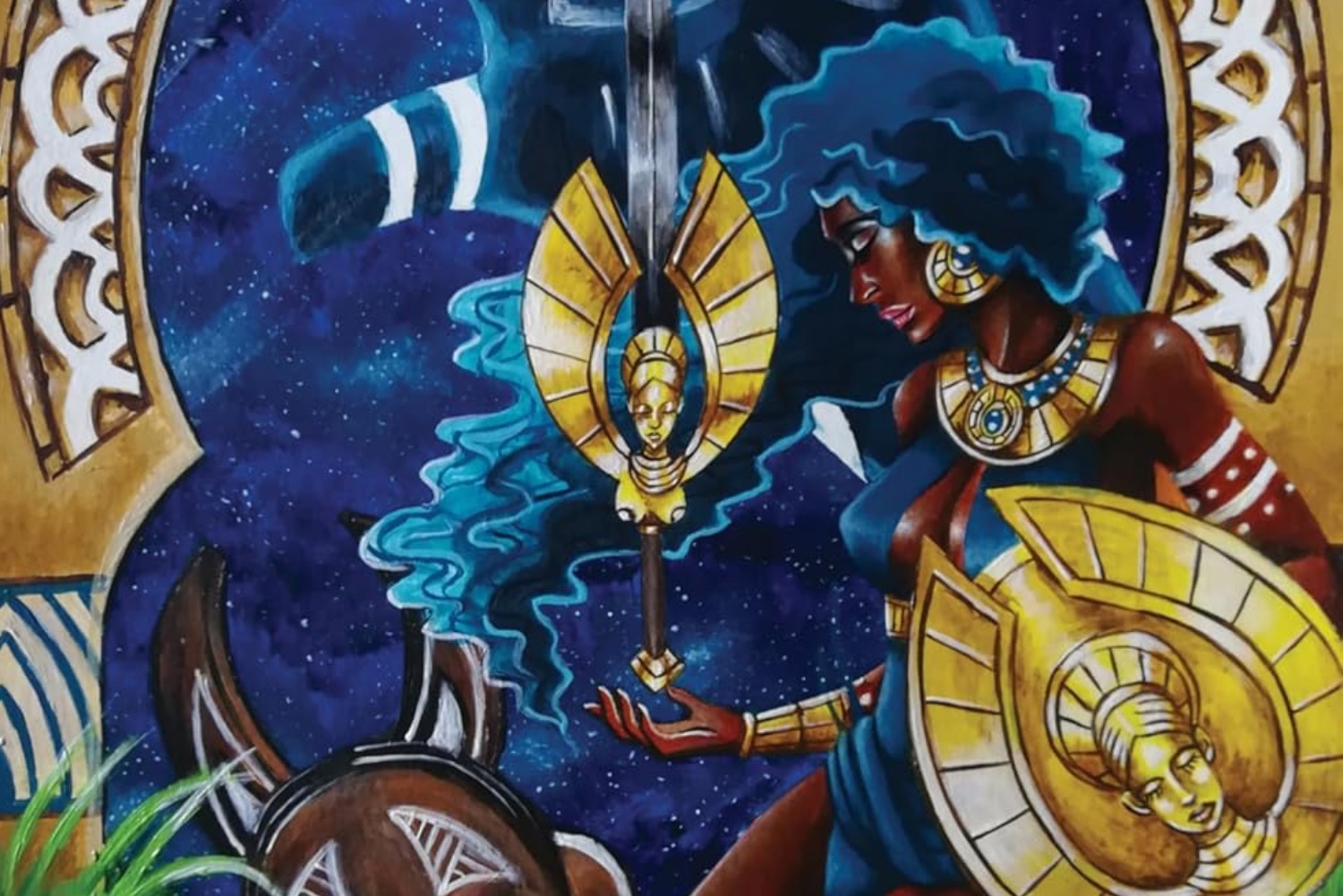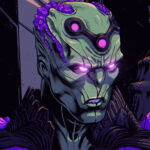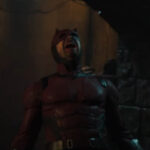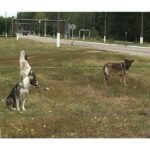Just when we thought the Game of Thrones TV series would remain our lasting obsession, George R.R. Martin’s book A Dance With Dragons displaced it, with a fresh set of revelations and agonizing moments from Westeros.
Martin is at San Diego Comic-Con promoting his latest book as well as the television series based on it, and we were lucky enough to speak to him one-on-one. He told us why so many people in Dance With Dragons are losing their identity, why we won’t be meeting the gods, and what he’d like to write after this series.
Spoilers for A Dance With Dragons — but no huge revelations — ahead…
Top image: Detail from Stephen Youll’s cover art for A Game of Thrones.
Are you still having fun writing these books?
Well, you know I have fun days and I have days that are less fun. You know, writing is my profession, and it’s a profession I certainly enjoy but I can’t lose track of the fact that it is work. And it’s very hard work and it’s frustrating work. But overall I think I enjoy writing, as much as I have ever enjoyed writing. But I most of all enjoy having written. Knowing it’s finished and holding the book in my hand, I’m enjoying the hell out of. Going to signings… that’s probably the most fun part of the job. But the writing is fun too.
It’s been pointed out that a lot of characters in A Dance With Dragons are losing their names, and their very identities, as a result of intense circumstances. What’s that about?
Arya has been doing it for some time, actually. Arya has gone through a dozen different identities, even getting to Braavos — where the ultimate goal of the Faceless Men is to become no-one, and to be able to assume identities as one assumes a suit of clothes. But yes, identity is one of the things that I’m playing with in this series as a whole, and in this particular book — what is it that makes us who we are? Is it our birth, our blood, our position in the world? Or something more integral to us? Our values our memories, et cetera.
Usually in a heroic fantasy series when someone loses their identity, you expect that to be followed by them regaining their selfhood in some dramatic way, or taking some heroic action that reasserts who they really are. Do you feel a responsibility to subvert that? Or play with that trope?
I’m certainly playing with it. There are different ways of assuming identities. Some of them I try to get at in books, and it’s a little bit reflected in the chapter titles. In some cases, it’s just someone putting on a mask. I mean Qwentyn Martell and his companions assume false names at several points during their journey from Dorne to Meereen. They assume different roles and different identities, but it never really affects who they are. When they’re in private, they’re still the people that they have always been. When you’re dealing with Arya and what she’s going through, or you’re dealing with Theon… you’re dealing with something much, much deeper there, where the original identity is being threatened or kind of broken down by one means or another, and maybe is in danger of being lost entirely.
There are several competing religions in this series now. Should we be wondering if some are more true than others? In a world with magic, is religion just magic with an extra layer of mythos?
Well, the readers are certainly free to wonder about the validity of these religions, the truth of these religions, and the teachings of these religions. I’m a little leery of the word “true” — whether any of these religions are more true than others. I mean, look at the analogue of our real world. We have many religions too. Are some of them more true than others? I don’t think any gods are likely to be showing up in Westeros, any more than they already do. We’re not going to have one appearing, deus ex machina, to affect the outcomes of things, no matter how hard anyone prays. So the relation between the religions and the various magics that some people have here is something that the reader can try to puzzle out.
With the HBO show, book two presents a lot of challenges to an adaptation, since it’s much more dispersed. Can we expect to see more liberties being taken?
This is the ongoing problem with all of the books. The story starts fairly close in, with all the characters in the same place. But as the books go on, the characters spread apart into smaller and smaller groups, that break apart. You get more and more locations, more and more secondary characters. It sort of deltas out. Eventually, they will turn around and start delta-ing in again, but we haven’t quite reached that point in the books. This is something the show is going to have to deal with, which is going to be a challenge.
One of the things that strikes me in the recent books is, there’ll be a major turning point for a character, and then you realize it’s been building for hundreds of pages. Do you always plan these huge events and then find ways to build up to them, or do you sometimes write a character’s journey and then realize that it’s been leading to a huge turning point?
All the major things have been planned since the beginning, since the early 90s, the major deaths and the general direction of things. Obviously, the details and the minor things have been things that I’ve discovered along the way, part of the fun of writing the books is making these discoveries along the journey. But the general structure of the books has been in my head all along.
It’s always a tightrope, writing — you do have to set things up. You don’t want them to come out of nowhere, out of left field. You do want to foreshadow them. But you don’t want the developments to seem predictable. If everybody knows what’s coming two books before it comes, then it loses all its impact. That’s the tough part. There’s no easy answer to that. You just do what you can.
Your books, especially recently, are full of women trying to exert power in a male dominated world who have to compromise themselves along the way. Are you trying to make a feminist statement?
You could certainly interpret it that way. I don’t presume to say I’m making a statement of this type or that type. But it is certainly a patriarchal society, I am trying to explore some of the ramifications of that. I try to write women as people, just as I try to write any other characters. Strong and weak, and brave and cowardly, and noble and selfish. It has been very gratifying to me how many women read my work and how much they like at least some of my female characters.
The anti-war speech by the Barefoot Septon, about broken men, is one of the most striking things in A Feast for Crows, and it feels like a thematic statement for the series. People have speculated this is your voice coming through. Is the pointlessness of war something you want people to come away with as a central idea?
Well, I’m very pleased with that particular speech. But I don’t know, I hate to think it’s true that it’s the voice of the author coming through. I don’t want them to see me. You’re not supposed to see the puppeteer, you’re just supposed to see the puppets. You’re not supposed to see the screenwriter peering over the screen, you’re just supposed to see the actors.
Yeah, if you know anything of my personal history, you know I was against the Vietnam war. And so one of the things that’s going on in the books as a whole, not just in that speech but elsewhere, is some reflections on war and violence, and the cycles we get into, and the costs of war. Some things that perhaps are not sufficiently considered in a lot of fantasy novels or science fiction novels, for that matter. It’s easy to write the big, big war stories where no-one important ever dies, so the only ones you ever see slaughtered are the extras, the orcs or your own army. So you just say, “Oh, it was a terrible battle, we lost 10,000 men.” But it has no visceral effect on the reader.
It’s just like reading a story in the newspaper about some terrible tsunami or earthquake in a distant part of the world, where a lot of people died. You read it and absorb it, and of course you’re very sad that 10,000 people just died at the other end of the world, and then you go and have your breakfast and go on with your day, and within half an hour you’ve forgotten about it. But if your best friend dies or your mother dies, or one of your children dies, that’s only one person, but it has enormously more emotional impact. So I want the deaths in my world, the wars, to have an emotional impact on the readers.
Ifyour best friend or your loved one dies, it’s n… I want the
After you finish writing A Dream of Spring would you start another multi-volume fantasy series?
Well, never say never again, but I don’t think I would ever do anything quite this big again. I might do something like a trilogy, or something like a book that had a sequel. Actually, I think after finishing A Dream of Spring I might write some standalone novels, I have a couple of ideas for those. And a lot of short stories. It’s been a long time, I have a lot of short story ideas I’d really like to do. I really began my career writing short stories.
